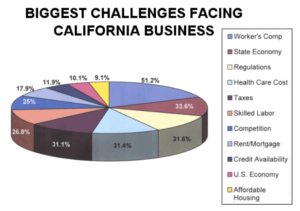Tax Medical Deductions
Tax Medical Deductions
April 15th is almost here and if you are owing tax it may pay to take a second look at that return to see if you claimed all medical deductions you are entitled to. Your diligence in keeping track of expenses will pay off. IRS Publication 502 has a complete listing of all medical costs deductible. Following are some of the commonly overlooked medical deductions.
Medical Expenses
The medical expense deduction is limited to the amount by which the annual medical expense exceeds 7.5% of your adjusted gross income. Included in this category are reimbursement amounts paid for health insurance, hospital, and nursing care, doctor’s and dentists’ visits, prescription medications, eyeglasses, hearing aids, and long-term care insurance premiums and services.
You can also deduct home improvements related to medical expenses. These expenses may include, but are not limited to the following:
Constructing entrance or exit ramps for your home.
Widening doorways at entrances or exits to your home.
Widening or otherwise modifying hallways and interior doorways.
Installing railings, support bars, or other modifications to bathrooms.
Lowering or modifying kitchen cabinets and equipment.
Moving or modifying electrical outlets and fixtures.
Installing porch lifts and other forms of lifts (but elevators generally add value to the house).
Modifying fire alarms, smoke detectors, and other warning systems.
Modifying stairways.
Adding handrails or grab bars anywhere (whether or not in bathrooms).
Modifying hardware on doors.
Modifying areas in front of entrance and exit doorways.
Grading the ground to provide access to the residence.
Only reasonable costs to accommodate a home to a disabled condition are considered medical care. Additional costs for personal motives, such as for architectural or aesthetic reasons, are not medical expenses.
An often overlooked medical deduction is the medicare Part A and Part B premiums voluntarily paid by Social Security recipients. Also, if you travel to medical conferences relating to a dependent’s chronic disease, smoking cessation programs or travel to obtain medical treatment, you may be able to deduct the cost of your transportation, as well as food and lodging.
Nursing Services
You can include in medical expenses wages and other amounts you pay for nursing services. The services need not be performed by a nurse as long as the services are of a kind generally performed by a nurse. This includes services connected with caring for the patient’s condition, such as giving medication or changing dressings, as well as bathing and grooming the patient. These services can be provided in your home or another care facility.
Generally, only the amount spent for nursing services is a medical expense. If the attendant also provides personal and household services, amounts paid to the attendant must be divided between the time spent performing household and personal services and the time spent for nursing services. However, certain maintenance or personal care services provided for qualified long-term care can be included in medical expenses.
You can also include in medical expenses part of the amount you pay for that attendant’s meals. Divide the food expense among the household members to find the cost of the attendant’s food. Then divide that cost in the same manner as in the preceding paragraph. If you had to pay additional amounts for household upkeep because of the attendant, you can include the extra amounts with your medical expenses. This includes extra rent or utilities you pay because you moved to a larger apartment to provide space for the attendant.
Employment taxes. You can include as a medical expense social security tax, FUTA, Medicare tax, and state employment taxes you pay for a nurse, attendant, or other person who provides medical care. If the attendant also provides personal and household services, you can include as a medical expense only the amount of employment taxes paid for medical services.
Health Insurance Costs for Self-Employed Persons
If you were self-employed and had a net profit for the year, were a general partner (or a limited partner receiving guaranteed payments), or received wages from an S corporation in which you were a more than 2% shareholder (who is treated as a partner), you may be able to deduct, as an adjustment to income, all of the amount paid for medical and qualified long-term care insurance on behalf of yourself, your spouse, and dependents.
The insurance plan must be established under your trade or business, and you cannot take this deduction to the extent that the amount of the deduction is more than your earned income from that trade or business.
You cannot take this deduction for any month in which you were eligible to participate in any subsidized health plan maintained by your employer or your spouse’s employer. This rule is applied separately to plans that provide long-term care insurance and plans that do not provide long-term care insurance.
If you qualify to take the deduction, use the Self-Employed Health Insurance Deduction Worksheet in the Form 1040 instructions to figure the amount you can deduct. But if any of the following applies, do not use the worksheet.
You had more than one source of income subject to self-employment tax.
You file Form 2555, Foreign Earned Income, or Form 2555-EZ, Foreign Earned Income Exclusion.
You are using amounts paid for qualified long-term care insurance to figure the deduction.
Feel free to contact us at groco.com if you have any questions on how to maximize your medical deductions.
We hope you found this article about “Tax Medical Deductions” helpful. If you have questions or need expert tax or family office advice that’s refreshingly objective (we never sell investments), please contact us or visit our Family office page or website www.GROCO.com.
To receive our free newsletter, contact us here.
Subscribe our YouTube Channel for more updates.

Alan Olsen, is the Host of the American Dreams Show and the Managing Partner of GROCO.com. GROCO is a premier family office and tax advisory firm located in the San Francisco Bay area serving clients all over the world.
Alan L. Olsen, CPA, Wikipedia Bio

GROCO.com is a proud sponsor of The American Dreams Show.

The American Dreams show was the brainchild of Alan Olsen, CPA, MBA. It was originally created to fill a specific need; often inexperienced entrepreneurs lacked basic information about raising capital and how to successfully start a business.
Alan sincerely wanted to respond to the many requests from aspiring entrepreneurs asking for the information and introductions they needed. But he had to find a way to help in which his venture capital clients and friends would not mind.
The American Dreams show became the solution, first as a radio show and now with YouTube videos as well. Always respectful of interview guest’s time, he’s able to give access to individuals information and inspiration previously inaccessible to the first-time entrepreneurs who need it most.
They can listen to venture capitalists and successful business people explain first-hand, how they got to where they are, how to start a company, how to overcome challenges, how they see the future evolving, opportunities, work-life balance and so much more..
American Dreams discusses many topics from some of the world’s most successful individuals about their secrets to life’s success. Topics from guest have included:
Creating purpose in life / Building a foundation for their life / Solving problems / Finding fulfillment through philanthropy and service / Becoming self-reliant / Enhancing effective leadership / Balancing family and work…

MyPaths.com (Also sponsored by GROCO) provides free access to content and world-class entrepreneurs, influencers and thought leaders’ personal success stories. To help you find your path in life to true, sustainable success & happiness. It’s mission statement:
In an increasingly complex and difficult world, we hope to help you find your personal path in life and build a strong foundation by learning how others found success and happiness. True and sustainable success and happiness are different for each one of us but possible, often despite significant challenges.
Our mission at MyPaths.com is to provide resources and firsthand accounts of how others found their paths in life, so you can do the same.
How to Successfully Sell Your Company
How to Successfully Sell Your Company Tips for Privately-Held Business Owners By Jason Pfannenstiel Be clear about your motivation for selling. Reason for the sale is among the first questions buyers will ask. Your personal and professional reasons should be more than simply wanting to cash out for a certain magical dollar value. Before you…
15 Ways to Improve Your Cash Flow Now
15 Ways to Improve Your Cash Flow Now By Howard Fletcher Cash management theory and techniques are well understood and practiced by treasury managers in large corporations. They use sophisticated models and cash management tools that allow them to predict and manage cash. Many of these are beyond the reach or need of small companies.…
Survey: Biggest Challenges Facing California Businesses
Survey: Biggest Challenges Facing California Businesses A recent survey was conducted to determine what business owners in California thought the biggest challenges facing their businesses were. Out of 1500 questionnaires, these are the percentage of respondents who checked off a box next to each challenge. (Respondents were allowed to select more than one box, so…
5 Strategies to Successful Cash Flow Management
5 Strategies to Successful Cash Flow Management By John Reddish How can you predict, avoid and/or, minimize the impact of a cash emergency? Managing cash flow is every manager’s challenge, every day, every year. Those managers who keep a close eye on their daily activity and emerging industry trends can help reduce their company’s exposure…


